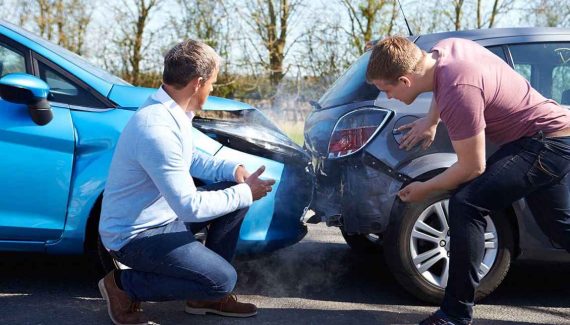If you are opening a new trucking company, you are probably overwhelmed with everything that you have to do. It can be very easy to forget about insurance. However, buying insurance is one of the most important things a trucking company owner must do. Not only must you buy insurance, but you must have it in the right amount.
It is important to know the different types of policies you will need to run a successful trucking company. It is also important to know what types of insurance are legally required in your situation.

Contents
Liability Insurance
Every driver on the road is required to carry liability insurance. Liability insurance will cover you if one of your drivers causes an accident.
The Federal Motor Carrier Safety Administration sets the standards for the trucking industry in the United States. If you operate a vehicle that is over 10,000 pounds and crosses state lines, you must carry liability insurance between $750,000 and $5,000,000. The exact amount will depend on the cargo you haul. If you haul hazardous materials in the amount that requires placarding, you will also need at least $750,000 worth of insurance. If you haul non-hazardous materials in a vehicle that is under 10,001 pounds, you will need $300,000 of insurance.
If you think this sounds like a lot, you should know that drivers who carry passenger vehicles with a seating capacity of fewer than 15 passengers require $5,000,000 to $1,500,000 of insurance.
Physical Damage Insurance
Liability insurance will pay for the medical bills of anyone that one of your drivers injured in an accident that they caused. It will also cover property damage that is done to the other driver’s vehicles. However, the liability insurance policy will not cover damage to your own truck if your driver causes an accident.
You will need physical damage insurance to cover expenses for repairs to your truck if your driver should cause an accident.
Although the FMCSA does not require you to have a specific amount of physical damage insurance, the company that is financing your trucks is certain to want you to have it. Even if you own your trucks outright, They cost thousands of dollars and you may have a hard time replacing them if you do not have insurance.
Cargo Insurance
The FMCSA requires household moving companies to have $5,000 worth of insurance for each vehicle and $10,000 of insurance per accident. They do not have a minimum amount of insurance for which commercial truck drivers must be covered. However, you will definitely need cargo insurance to stay in business because your clients will require it. When you sign a contract with them, it should specify the amount of cargo insurance you will have. Most clients will want you to at least have the wholesale value of their products covered.
Cargo Insurance will cover the cost of replacing products that spill out onto the road during an accident. It will also cover the cost of any items that are lost or stolen along the way.
Bobtail Insurance
If you are like most trucking companies, your drivers probably occasionally take their truck home for the night. When they do this they are not on the clock and they will not be covered by your liability insurance if they have an accident. Bobtail insurance will cover off-duty accidents.
General Insurance
No matter what business a person is in, they are going to need general insurance If they operate out of a brick-and-mortar facility. Trucking companies have a lot of activity going on at all times. You will have people inspecting trucks, working on trucks, and loading and unloading trucks. Someone is bound to slip and fall.
If one of your workers takes a spill at your facility, your worker’s compensation insurance will cover it. If one of your clients or independent contractors who are working for you injures themselves, workers’ compensation will not take care of it. You will need a general insurance policy to pay the bills of anyone who is injured on your property.
Nobody enjoys shopping for insurance. It is best to bundle your insurance policies to save money. Click here for more information.
You May Also Like:
- How Much Does Truck Insurance Cost?
- Difference Between Collision and Comprehensive Insurance
- Otto Insurance Review – Is it a Scam or Legit?


